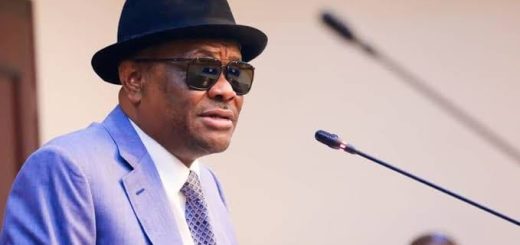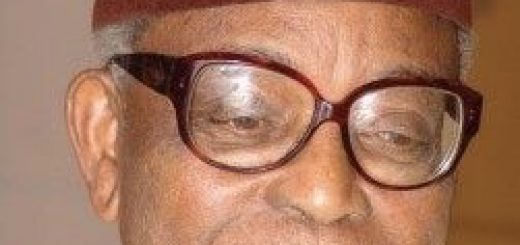I Don’t Understand This Country – Frank Ofili
462 views
On July 2024, the Chief Executive of the Nigerian Midstream and Downstream Petroleum Authority (NMDPRA), Farouk Ahmed publicly criticised local refineries, including Dangote Refinery, alleging they produce inferior petroleum products compared to imported ones. He specifically lampooned Dangote Refinery’s premium motor spirit (PMS) high sulphur content.
Ahmed went further to claim that the CEO of Dangote Refinery, Aliko Dangote himself, requested a halt to all petroleum product imports and a directive from government for oil marketers to exclusively patronise his refinery – a situation that not only jeopardises Nigeria’s energy security and market fairness but also confers on Dangote a monopoly status. Such a situation, he argued, should not be allowed in the interest of the nation.
Aliko Dangote publicly debunked Ahmed’s allegations with evidence of test results of samples of products collected from two different filling stations and another from his own refinery. He also provided a sample of colourless PMS from his refinery and called on the NMDPRA to review its testing laboratory.
When will the Federal Government and NNPCL fix our four refineries to compete with Dangote Refinery?
Farouk Ahmed was generally condemned for what was regarded as anti-Dangote refinery statement. The House of Representatives, through a motion titled “Urgent Need to Address the Outrage Resulting from Unguarded Comments by the Chief Executive of the Nigerian Midstream and Downstream Petroleum Authority,” sponsored by Esosa Iyawe from Edo State, called for his suspension. The controversy dovetailed into other issues with the Nigerian National Petroleum Company Limited (NNPCL) and its big wigs being drawn into the mix. Mele Kyari, NNPCL’s Group Chief Executive Officer, was accused of owning a petroleum products blending plant in Malta.
Eventually though, President Tinubu called a truce with a directive to the NNPCL to sell crude oil to Dangote Petroleum Refinery and other refineries in Naira.
And normalcy returned in the relations between Dangote Refinery, NMDPRA and NNPCL. Or so it seemed.
Not long afterwards, however, another controversy ensued when NNPCL became the sole off-taker of Dangote Refinery’s premium motor spirit (PMS), even with the authority to determine its price.
Nigerians considered this an anomaly and cried out. NNPCL’s monopoly hold over a local product it does not produce even as it has its own refineries that could have produced it was called to question. They called on NNPCL to focus on fixing its own four moribund refineries to compete with Dangote Refinery instead of concerning itself with playing what was considered the role of a “side chick” to Dangote Refinery. To them, it was an anomaly that NNPCL should be determining the price of a private enterprise’s end product when it has the facility produce the same product. In the midst of the controversy, the owner of the private enterprise, Aliko Dangote himself, refused to disclose the price of his product, saying it was beyond him.
In response, both the Federal Government and NNPCL promised that Port-Harcourt refinery would commence operation in August this year. Independent Petroleum Marketers Association of Nigeria (IPMAN) issued a statement stating that its members would prefer to buy petroleum products directly from Dangote refinery instead of going through NNPCL. This was to avoid the extra margin NNPCL would have built into the cost.
Eventually, the outcry forced the hand of government, and NNPCL was made to relinquish its unwarranted middleman role. But even at that it still went ahead to increase fuel price twice in one month while energy crisis persisted.
Why is NNPCL still playing the role of “side chick” to Dangote Refinery?
Few weeks down the line, Dangote is now crying that he has huge unsold stock (an estimated 500 million litres) of fuel which is costing him a fortune to keep. He says this situation has arisen because independent marketers are not patronising him, preferring instead to import from abroad.
IPMAN has countered Dangote. Its president Abubakar Garima spoke on Channels Television’s Sunrise Daily on Wednesday October 30. He said that its members were unable to load petrol from Dangote refinery for several days. Garima said IPMAN members are not importing petrol, as claimed by Dangote, and that Dangote Refinery should allow its members to register directly to facilitate access to the product, rather than require them to go through the NNPC.
According to him “if Dangote can be able to sell the product to us directly, we can buy the product, because we have to pay before we pick. Presently, we have N40 billion under the NNPCL custody, but we cannot source the product.”
And there lies my confusion. Some things in our oil economics seem to be shrouded in secrecy, as if it were some occult arrangement. I thought conventional economics postulates that surplus drives down price, and that scarcity pushes it up. Now Dangote, from whom NNPCL buys fuel, says he has surplus stock and capable of addressing current energy scarcity if independent marketers patronise him. This not only suggests that supply is not the problem, rather that NNPCL alone does not have the capacity to meet up with up Dangote output and satisfy market demand.
Yet, NNPCL has gone ahead to increase fuel price yet again, the third time in less than two months even as Dangote laments that he has huge stock of unsold inventory waiting to be off-loaded. Now, the question to ask is, how come independent marketers are not able to access Dangote fuel directly?
The explanation may not only be in Dangote’s pricing, but also in his somewhat opaque relationship with NNPCL. This is corroborated by Abubakar Garima’s response to Dangote’s accusation that independent marketers have shunned his products
I find myself asking some pertinent questions. One, why does Dangote allow NNPCL to be the sole intermediary between marketers and his products contrary to the earlier directive of government? Two, why is he limiting access to his product, yet cry of lack of patronage? Is that not a contradiction? Three, instead of asking government to ban independent marketers from importing the product, why can’t he offer incentives to encourage them to patronise him and stop imports? Four, why is NNPCL increasing the price of his product in the face of excess idle stock? Would this not further exacerbate the unsold inventory? Five, if independent marketers are not patronising him, how about foreign orders? Surely, there must be some foreign orders for his products, especially from neighbouring countries. Are they not showing interest?
And finally, when will the Federal Government and NNPCL fix our four national refineries that have remained moribund for years now, and on which millions of Dollars have been spent, and are still being spent, without result? If the refineries are unrepairable – like former President Obasanjo had stated – can we just call it quits instead of deceiving the public and syphoning money in the name of turn-around maintenance?
Is it not curious that something that is, to all intents and purposes, completely non-functional is being “maintained” every now and then? More curious is the fact that no account has been given of the Millions of Dollars so far spent over the years on “maintaining” the refineries.
I don’t understand this country.












